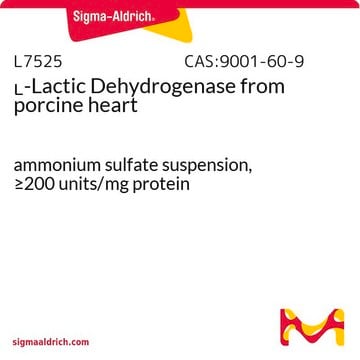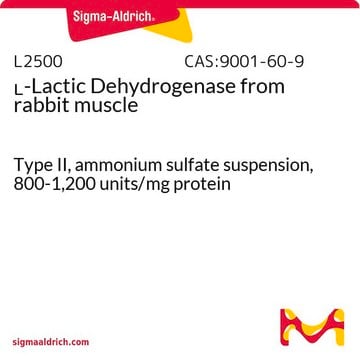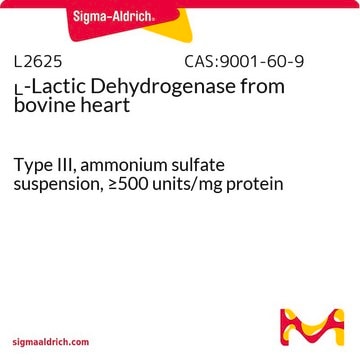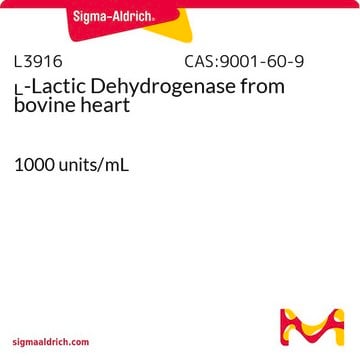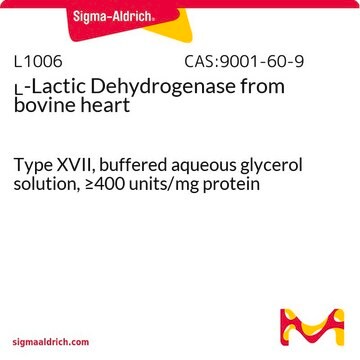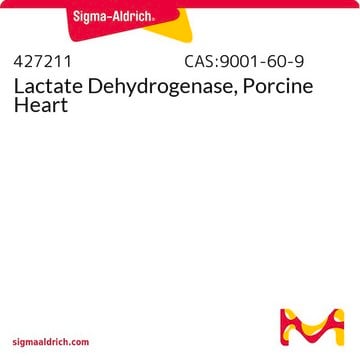L1378
L-Lactic Dehydrogenase from bovine muscle
Type X, ammonium sulfate suspension, ≥600 units/mg protein
Synonym(s):
(S)-Lactate: NAD+ oxidoreductase, L-LDH, LAD, LD, Lactate
About This Item
Recommended Products
biological source
bovine muscle
type
Type X
Assay
3.0—25.0 mg protein/mL (biuret)
form
ammonium sulfate suspension
specific activity
≥600 units/mg protein
manufacturer/tradename
Sigma-Aldrich
technique(s)
activity assay: suitable
color
white
pH
7.5
application(s)
life science and biopharma
foreign activity
pyruvate kinase ≤0.01%
storage temp.
2-8°C
Gene Information
cow ... LDHA(281274) , LDHB(281275)
General description
Lactate dehydrogenase (LDH) is a key enzyme in the anaerobic metabolic pathway and falls under the class of oxidoreductases. This enzyme is found in a wide range of organisms, including both plants and animals. It is widely distributed across all tissues. LDH is primarily a cytoplasmic enzyme, with particularly high concentrations in muscle, liver, and kidney tissues.
Application
Biochem/physiol Actions
Unit Definition
Physical form
Analysis Note
Signal Word
Danger
Hazard Statements
Precautionary Statements
Hazard Classifications
Resp. Sens. 1
Storage Class Code
11 - Combustible Solids
WGK
WGK 1
Personal Protective Equipment
Certificates of Analysis (COA)
Search for Certificates of Analysis (COA) by entering the products Lot/Batch Number. Lot and Batch Numbers can be found on a product’s label following the words ‘Lot’ or ‘Batch’.
Already Own This Product?
Find documentation for the products that you have recently purchased in the Document Library.
Customers Also Viewed
Our team of scientists has experience in all areas of research including Life Science, Material Science, Chemical Synthesis, Chromatography, Analytical and many others.
Contact Technical Service